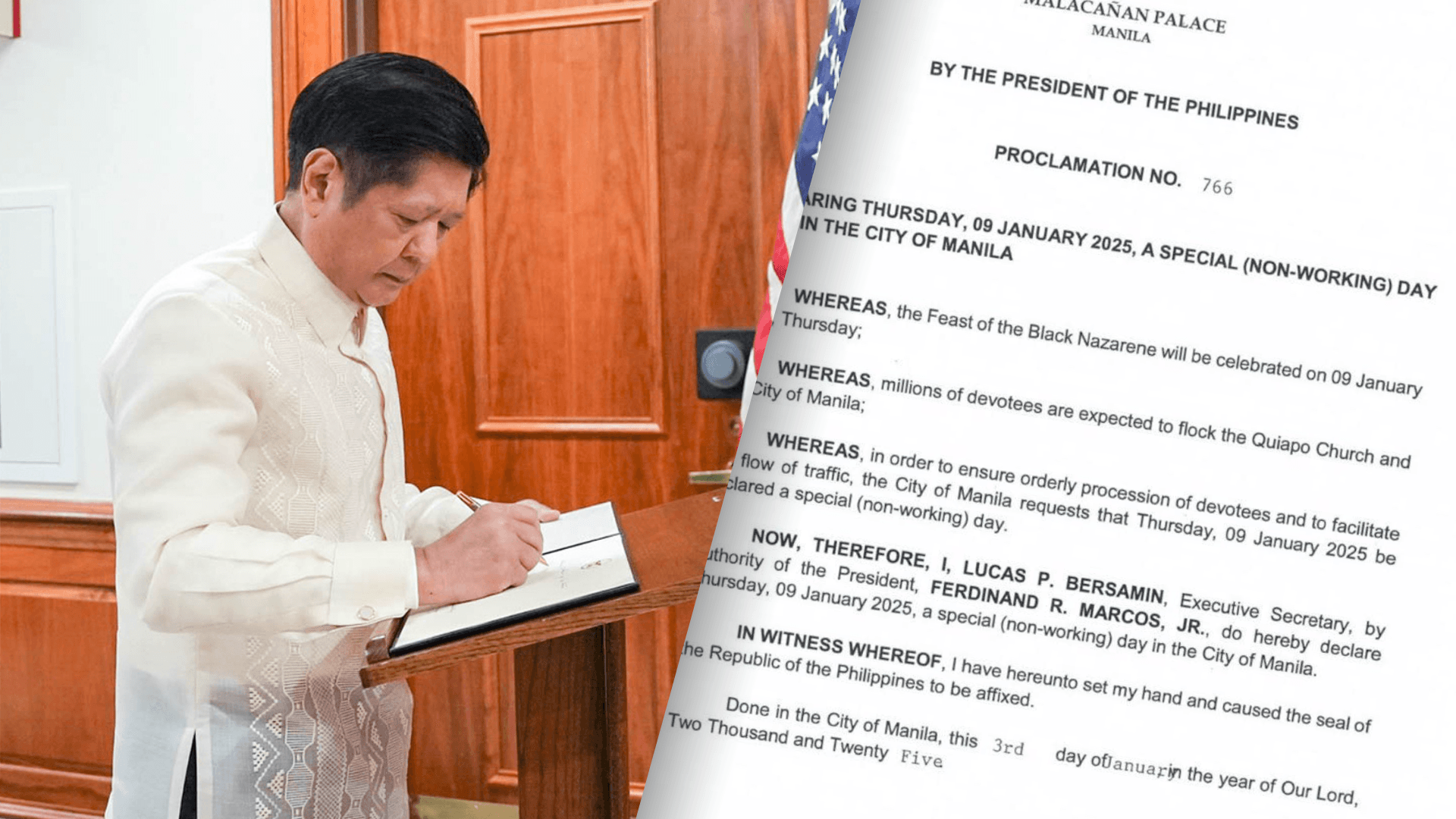Marcos declares Jan. 9 special non-working day in Manila for Feast of the Black Nazarene
At A Glance
- Executive Secretary Lucas Bersamin signed Proclamation No. 766 on the same day, declaring the holiday to allow devotees to participate in the annual Traslacion, ensure an orderly procession, and facilitate the traffic flow.
President Marcos has declared Jan. 9 a special non-working day in Manila to mark the celebration of the Feast of the Black Nazarene.

The Presidential Communications Office (PCO) made the announcement via a Facebook post on Friday evening, Jan. 3.
Executive Secretary Lucas Bersamin signed Proclamation No. 766 on the same day, declaring the holiday to allow devotees to participate in the annual Traslacion, ensure an orderly procession, and facilitate the traffic flow.
The Feast of the Black Nazarene, also known as the Traslacion, is one of the most significant religious celebrations in the Philippines, held annually on Jan. 9 in Manila.
The observation revolves around the revered statue of the Black Nazarene, which represents Jesus Christ carrying the cross. The celebration has deep historical roots and attracts millions of devotees each year.
The statue of the Black Nazarene was brought to Manila from Mexico by Spanish missionaries in 1606. It is housed in the Minor Basilica of the Black Nazarene in Quiapo, Manila. The Traslacion commemorates the statue's transfer from its original location in Intramuros to Quiapo in 1787.
During the Traslacion, the statue is moved from the Quirino Grandstand to the Quiapo Church. Devotees often dressed in maroon and yellow walk barefoot, pull ropes attached to the carriage, and try to touch or wipe the image with handkerchiefs, believing in its supposedly healing powers.
According to the Quiapo Church, over 6.1 million devotees attended last year's Traslacion, marking one of the highest numbers of participants after a three-year hiatus due to the Covid-19 pandemic.